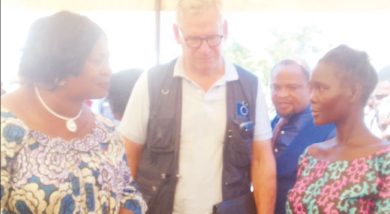No rigging took place–EU mission
The European Union 2014 Election Observation Mission (EU EOM) yesterday said it did not find any evidence of rigging in the May 20 Tripartite Elections, adding that the final outcome would not have changed even if a recount had taken place.
Presenting its final report and recommendations for future electoral processes in Malawi, EU EOM chief observer Veronique De Keyser said in Blantyre the many anomalies found by EU EOM in presidential results data base had no tendency in favour of any particular party and were spread geographically over different districts.

“In our view, these suggest isolated cases of errors or anomalies rather than anything more systematic to feed into allegations of rigging,” said De Keyser. “From the size of the anomalies we observed, and the difference between the two leading candidates, a recount would not have changed the final result.”
However, the EU EOM faulted the Malawi Electoral Commission (MEC) for failing to prepare on time for the election day and its lack of structural capacity in conducting some key operations of the electoral process.
Observed De Keyser: “Although the EU EOM recognised efforts by the MEC to provide transparency throughout the tallying process, several key factors–organisational mismanagement, lack of capacity and training, significant logistical shortcomings on election day resulting in non-compliance with polling procedures and non-secure transmission of results by a variety of means, gave rise to significant concerns about the integrity and authenticity of the results.”
Her mission, according to De Keyser, also observed that regionalism was a significant factor that influenced the presidential choice, explaining that despite all the leading parties—the Democratic Progressive Party (DPP), the Malawi Congress Party (MCP), the People’s Party (PP) and the United Democratic Front (UDF)—carrying out nationwide campaign, they obtained majority of support from their respect regional and sub-regional strongholds.
Legal requirements to disclose political party sources of financing, a clear ban on the use of State resources for campaigning purposes and internal review of MEC in light of its limited capacity in organising and managing the elections are among the recommendations that the EU EOM has made in its 58-page report.
“We are making these recommendations to avoid a repeat of the problems faced in these elections,” said De Keyser. “Many of the problems that were experienced this year were predictable because they were raised in our previous recommendations, but nothing was done about them.”
Release of the presidential results was marred by legal battles that saw some political parties, notably presidential candidates for MCP Lazarus Chakwera and Peter Mutharika of DPP seeking legal redress.
Mutharika asked MEC to release the results within the statutory eight-day period whereas Chakwera fought for a recount and extension of the period for physical audit of the results.
The High Court ruled that the eight-day statutory period under which MEC is compelled to announce poll results from the last day of voting cannot be extended.
Judge Kenyatta Nyirenda said his hands were tied because that was what the law required and it was clear and had to stand by that.





